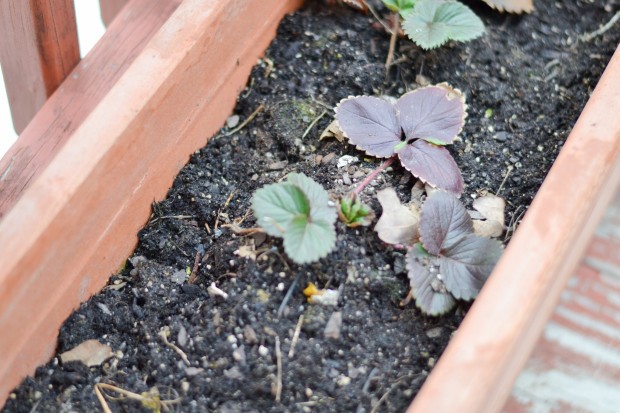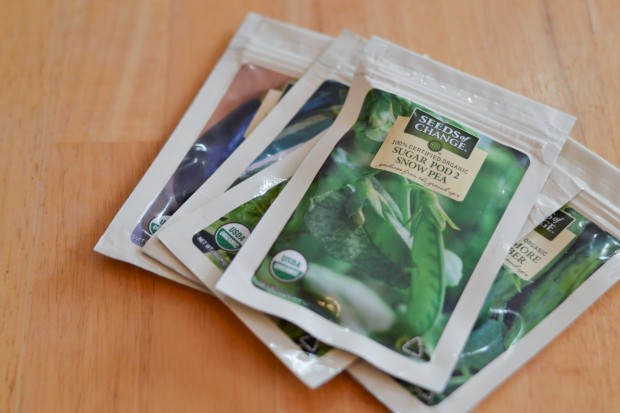This is the first post in Abby Sasscer’s Simple Kitchen Series
Most of us are constantly on the lookout for ways to save on grocery bills. It is no easy feat to juggle staying within our budget and still be making healthy meals for our families.
The first step we took to live within our means was to set up a reasonable grocery budget. While doing so, we needed to make sure that our monthly allowance was realistic enough based on our growing family’s needs.
The next step was to simplify our weekly menu. For example, we designated Tuesdays and Fridays as Beans and Legumes Day. Keeping meals simple not only helped us stay within our budget but also allowed our family to live in solidarity with those who can’t afford to eat as well as we do.
Seven Strategies
Below are seven strategies we’ve discovered over the years to help us stay within our budget and still eat healthy meals:
1. Plan a weekly menu
Planning your menu on a weekly basis keeps you focused on purchasing ingredients you only need for the week. No more, no less. If you have ingredients that can still last an entire week, finish those first before purchasing new ones. Some families plan their menu based on weekly sales flyers. Others plan based on what’s inside their pantry. It doesn’t really matter how you plan. What’s important is that you try your best to plan.
Here’s one of our sample weekly menus:
- Mama Mia Mondays – Tomato, Basil and Mushroom over Whole Grain Kamut Pasta
- Intentional Tuesdays – Rice with Black Beans and Fried Platano
- No-Waste Wednesdays – Leftovers
- Theme Thursdays -Shrimp Pad Thai Topped with Scrambled Eggs
- Frugal Fridays – Black Bean Soup with Toasted Whole Grain Bread
- Soup Saturdays – Seafood Gumbo with Rice
- Scrumptious Sundays – Creamy Dill Salmon with Green Beans and Mashed Potatoes
2 . Go straight to the source
Support local farmers as much as possible. Because there is no middle man involved, the prices farmers offer are comparable to, and sometimes even lower, than grocery-bought meats.
If you live in the city, visit farmers’ markets during the spring and summer and freeze any leftovers for the winter time. Consider purchasing grass-fed, hormone-free beef and poultry in bulk from local farmers who care about our health and our planet.
Most importantly, by going straight to the source, we patronize small farm families who rely heavily on community support for their livelihood.
3 . Eat more plant-based proteins
Simplifying our menu included replacing some of our meat intake with more vegetables, beans, legumes, seeds and whole grains. These types of foods are very economical especially if you buy them in bulk. Black beans, kidney beans, lentils, chickpeas, navy beans and quinoa have quickly become a favorite in our household.
Beans and legumes are a wonderful source of protein, fiber, iron, magnesium, antioxidants, copper and zinc. They are also very low in cholesterol. And because they are so hearty, we feel very satisfied without having a constant desire to snack. All of this translates to a lower monthly food bill.
4 . Calculate your grocery bill BEFORE you even enter the store
The beauty of planning your menu is that it helps you create a more accurate grocery list. When I make my grocery list, I not only write down the ingredients I need but I also include the estimated cost right next to it. This makes it easy to calculate the cost of my grocery bill before I even enter the store. If the amount is over the budget, I go through the list again and postpone items we can do without until the next week.
5 . Keep your budget in mind while grocery shopping
While most months have four weeks, it’s important to budget based on a five-week cycle. By taking into account the occasional fifth week, you lessen the chances of going over your monthly budget.
Other ways to stick to your budget while shopping include: using coupons and sales flyers, visiting discount aisles first, buying fruits and vegetables in season, avoiding too many convenience foods, and buying bulk from a warehouse club or an organic food co-op.
Sticking to your grocery list is also an effective way to stay in budget. However, if you find something on sale that’s not on your list, make sure you return some items back on the shelf.
Oh, and we must remember the sagest advice ever: Never go to the grocery store hungry ;-)
6 . Grow your own
If you are new to gardening, my only advice is to try to keep things simple. While our family lives on three acres of land, we have yet to overcome one of the biggest obstacles to successful gardening… deer and rabbit invasions. But this did not discourage me from starting my own garden right away.
Since we neither had the time nor the resources to bunny-proof a garden, I began doing container gardening on our deck.

I started out with herbs and eventually branched out.

This past spring, the children and I planted basil, oregano, mint, chives, scallions, lettuce, snow peas and strawberries. These plants are easy to grow, can be used in our menu on a weekly basis, or can be stored in the freezer for future use.

And because we use organic seeds, I don’t feel bad when I can’t harvest everything. I simply allow the plants to seed and fall on the soil for another round of new plants next season.
7 . Glean
Research to see if there are any gleaning opportunities within your local community. One blessing we have living in a rural area is that we have plenty of gardeners and farmers as neighbors. Most of these farmers have an abundance of harvest and would gladly donate the fruits of their labors to the community . There is even a local church in our area that plants crops as a ministry and would drop off bushels of fresh vegetables during story and music hour at our library. I would take only what our family would need but when there’s still plenty of leftovers, I will chop and freeze some of these summer veggies so we can enjoy them during the winter time.
See You Next Time
I hope some of these tips help when you plan your next grocery trip. In the coming weeks, I will be writing more simple tips and recipes and I so look forward to sharing my Simple Kitchen Series with all of you!

 Seton Magazine Catholic Homeschool Articles, Advice & Resources
Seton Magazine Catholic Homeschool Articles, Advice & Resources










































